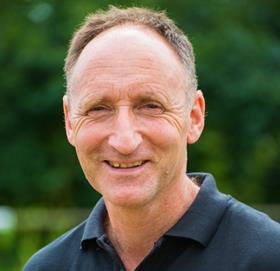
WB Chambers’ managing director Tim Chambers said his business is budgeting to break even this year as coronavirus precautions slow production, and labour shortages continue to pose a threat of unpicked crops.
Speaking on BBC Radio 4 Chambers said it was currently “the calm before the storm” as British soft-fruit growers prepare for peak harvest, in the midst of Britain’s worst crisis since World War 2.
Travel restrictions across Europe have prevented the usual influx of seasonal workers to Britain, leaving an unprecedented shortage of labour. Meanwhile social distancing procedures also raise the costs of production, as well as an increase in inexperienced pickers, particularly from the UK.
“We’re actually budgeting to come out of the year at zero – no profit – we’re anticipating that we probably won’t be able to harvest all our crop.
“If I can get out of this year with what I came in on, I think I’ll be one of the lucky businesses in the country.
“We’ve budgeted to walk away from 25 per cent of our crop, we can survive one year walking away from 25 per cent - that’s our break even.”
Chambers said the business was looking at chartered flights to bring seasonal workers into the country, which can cost an eye-watering £45,000.
“It is a big cost, but faced with not picking your crop or paying that, then you would pay it. You need to get the people in,” Chambers said.
He added: “We are reasonably optimistic because we know people want to come to work. We are not so optimistic that the practical ways of them travelling will be there to get them here in time en masse.
Chambers’ production director Salih Hodzhov said despite the on-going pandemic, seasonal workers were still keen to get to Britain.
“Everybody wants to come, in fact there are more people willing to come, I don’t see any issues of people willing to come and work for us, they want to come. It’s just a question of can they come? Can they travel? Hopefully it is going to be sorted.”
Ian Chambers said the company had implemented several social distancing measures in its operations, including a quarantine camp for members of the workforce to isolate if displaying symptoms of coronavirus.
“A lot of the work being in the fields means that social distancing isn’t that difficult. Getting the workers to and from the field is a bit of a problem; we have to double the buses to have spacing, we disinfect the vehicles regularly to make sure we don’t cause a pandemic within our community.
“We have a campsite we haven’t opened yet that would be where people go if they are suspected of or do have symptoms of coronavirus; they would go to live in a separate camp for two weeks to make sure everything is safe when they come back.”



